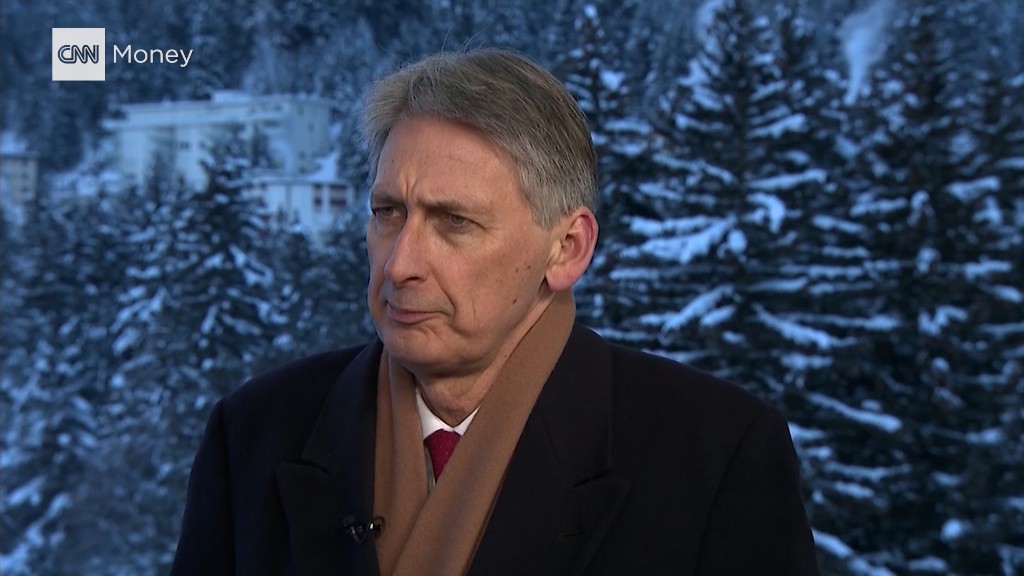
The number of children living in poverty in the U.K. will spike to around 30% over the next five years because of government welfare cuts, according to the Institute for Fiscal Studies.
The increase -- from 27.5% in the 2014/15 tax year -- will wipe out reductions in child poverty achieved in the aftermath of the financial crisis.
IFS blamed the increase on tax changes and benefit cuts planned by the current government, which is having to extend a program of austerity because Britain's exit from the European Union is forecast to hurt the economy.
"This increase is entirely explained by the direct impact of tax and benefit reforms ... planned for this parliament," the IFS said in a statement.
IFS consider a couple with one child to be in poverty if they're left with less than £288 ($350) per week after paying for housing.
Related: Europe to Trump: Learn more about the EU
There's more bad news: IFS found that growth in average incomes will be close to zero -- once inflation is taken into account -- over the next two years, before picking up. IFS described the growth as "very slow" by historical standards.
"This sustained slowdown in income growth is unprecedented in at least the last 60 years," the group said in a statement.
The U.K. Treasury said the IFS report does not account for spending on public services including education and skills. It also said that living standards are on the rise.
"We are taking action to support families with the costs of living by cutting taxes for millions of working people, doubling free childcare for nearly 400,000 working parents and introducing the National Living Wage -- a significant pay rise for the lowest earners," a Treasury spokesman said in a statement.
Related: 4.2 million migrants still wait to learn their fate after Brexit
Britain voted in June to leave the EU, setting off a period of tremendous economic and political uncertainty. While the pound immediately plummeted, the most dire economic scenarios envisioned by analysts prior to the referendum have failed to materialize.
But growth over the next five years is expected to be 2.4% lower than it would have been had Britain remained a member of the EU. And the weak pound is beginning to push prices higher, hitting consumers in the pocketbook. Consumer spending, which had been strong in the wake of the vote, is also faltering.
Prime Minister Theresa May is expected to start formal Brexit negotiations with the EU in the coming weeks. The most likely scenario is that Britain will end up leaving Europe's unified trading market and be forced to negotiate new terms of trade with its biggest partners.
The IFS report was funded by the Joseph Rowntree Foundation, an independent social research charity.


